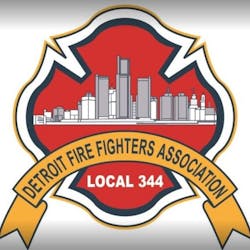Detroit's Firefighters Union Blasts EMS Dispatch Memo
By Christine Ferretti
Source The Detroit News
DETROIT—The city's fire union is blasting an internal directive that advises dispatchers not to automatically send EMS rigs to fire scenes as an "ignorant policy deviation" that could endanger lives.
The email, titled "Dispatching EMS on Fire Scenes," was distributed Wednesday to dispatchers by Kyla Wyatt, the department's chief of communications, laying out circumstances in which EMS should be deployed.
"Do not automatic dispatch EMS to a fire scene," the memo reads, listing reasons to send a unit. Among them: injuries to firefighters or others, an occupied dwelling, people trapped inside, a request from a fire unit or other information that "indicates EMS is needed."
"All instance above may not be listed, therefore you must make a decision," Wyatt wrote.
"This violates every standard known to firefighters and public safety," Detroit Fire Fighters Association President Mike Nevin said. "It's like sending a police officer to a bank robbery with no bullets. Or better yet, with a rubber gun."
Fire Commissioner Eric Jones says the memo doesn't reflect a policy change and EMS units still will respond to all building fires. The goal behind it, he said, is to curb backlogs and instances when units aren't available.
Jones acknowledged the email "probably should have been messaged better" but said the chief "was trying to solve a problem in her shop."
"That problem was having a backlog of calls and no EMS units available," he said. "She was doing what she believed was the best method to solve an emerging issue. She wanted to make sure units are available to answer 911 calls."
Jones said about three to four times per week, central dispatch will report "no transport units available." On Monday, The Detroit News reviewed three central dispatch alerts since Sunday morning for which units weren't available.
Jones said the issue is tied to multiple factors.
"Sometimes it's just flat-out busy. People get sick or there are calls that require transport," he said. "Sometimes, exacerbating that issue when we have a high call volume is EMS units sitting where they are not needed."
To that end, Jones said EMS units are going to continue to ensure firefighters and residents are safe at fire scenes. But they won't be sticking around if it's determined there isn't a need.
"They are still going to all of those runs automatically; the only thing that’s going to be changed is, there’s going to be a reminder to the chiefs and supervision to make sure they are monitoring units and making a determination of whether they are needed at the scene or not," he said.
Having units remain on scene when it's determined they aren't needed is "a waste of our resources" and "poor management."
Nevin, who has been a critic of public safety response and staffing in Detroit, contends Wyatt's memo is another example of how the department is "undermanned."
"We need fire companies and we need EMS companies," he said. "This is absolutely ridiculous and we're not going to stand for it and they know it. They got caught with their hands in the cookie jar."
The EMS dispatch concerns mark the latest high-profile policy clash between the union and department since last summer.
In August, fire administration determined it would no longer use lights and sirens on all fire runs.
The move prompted the union to warn that the new policy could endanger lives. But Jones said disregarding traffic signals and speed limits with the activation of lights and sirens for every run — even when it's not urgent — is unnecessarily dangerous.
Last month, a Wayne County Circuit Court judge rejected the union's request for an injunction to halt a policy that directs firefighters to clean up blood and bodily fluids at accident and medical scenes.
The union sued in March, asking the court to put a stop to the practice until an unfair labor complaint over the new rules could be resolved.
The union, in its court filing, argued that the policy could expose crews to HIV, hepatitis or other blood-borne pathogens and was approved by top management, without bargaining or consideration by the labor-managed Health and Safety Committee.
But fire administration has said while the policy wasn't in writing before, it's been a standard practice and is not new.
Jones on Monday defended the staffing of Detroit's EMS, saying the division only has six vacancies, leaving it better staffed than in past years.
Nevin said EMS has 16 to 20 rigs running in the city per day, depending on manpower and that's not enough to cover Detroit's 139 square miles.
Jones countered there's a minimum of 20 EMS units that work 24 hours per day as well as a "power shift" of five to seven additional EMS units that are in service during peak hours between 1 a.m. and 1 p.m. There also are about 10 private providers that respond, Jones said.
On Friday, Nevin emailed a letter to Jones, noting he'd been made aware of the EMS memo and would "take appropriate steps to ensure safety for the public we serve and our members who have taken said oath of obligation to protect the public at all costs."
Nevin said the union planned to meet with its attorneys Monday to figure out next steps.
"This is so screwed up," he said. "It's beyond words."
———
©2019 The Detroit News
Visit The Detroit News at www.detnews.com
Distributed by Tribune Content Agency, LLC.






